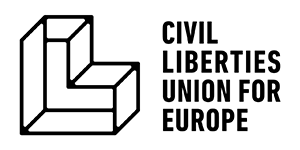• It is is the most extensive independent report submitted to the EU
• Increasing bans on protests, especially for climate and pro-Palestine demos
• The NJCM, in cooperation with the Netherlands Helsinki Committee, Free Press Unlimited and Transparency International Nederland from the Netherlands contributed to the report with 36 other human rights organisations from across the EU

The rule of law in the EU continued to deteriorate in 2023, as governments further weakened legal and democratic checks and balances, according to the newly published Liberties Rule Of Law Report 2024. Restrictions on the right to peaceful protest have increased significantly, but in many cases are applied selectively to pro-Palestine and climate protests only. The full report can be downloaded here.
In its fifth edition since 2019, the report identifies the most striking violations of justice, corruption, media freedom, journalists’ safety, checks and balances, civic space and systemic human rights concerns in the European Union in 2023. The comprehensive analysis, a collaboration of 37 human rights organisations covering 19 EU countries, is the most in-depth ‘shadow reporting’ exercise on the rule of law to date by an independent civil liberties network. The European Commission takes these findings into account in its annual monitoring of the rule of law, confirming the international relevance of the report.
In the Netherlands, the overall situation is that little progress has been made. The justice system in the Netherlands has shown mixed results, with improvements in digitalization but concerns about potential regression in anti-corruption measures, especially following the election victory of Geert Wilders’ Party for Freedom. Government performance in implementing GRECO recommendations on lobbying transparency and post-term employment restrictions is deemed unsatisfactory. While there are some advancements in media-related legislation, challenges remain in areas such as media council reforms and online content moderation. Checks and balances have regressed, with shrinking civic space and criticism of legislative drafting processes. Despite ongoing pressure on human rights and systemic issues, progress has been deemed unsatisfactory, particularly concerning the government’s response to the Toeslagenaffaire.
The national country report was produced by the Nederlandse Juristen Comité voor de Mensenrechten (Dutch Section of the International Commission of Jurists, NJCM), the Netherlands Helsinki Committee (NHC), Free Press Unlimited (FPU), and Transparency International Nederland (TINL). The Netherlands Country Report is available here.
In well-established democracies, such as France, Germany, Belgium, the Report unveils occasional but not endemic challenges to the rule of law. The real concern arises when there’s a possibility of an extremist party gaining control, as this could turn these sporadic issues into a systemic problem in the future. In other older democracies, for example Italy, Sweden, where the far-right have come into power and are gradually eroding the rule of law, the decay seems to be a gradual process. This might be attributed to the resilience of these older democratic institutions, making them more resistant to takeover attempts. Fortunately, this provides pro-democracy advocates with the opportunity to mobilise, rally support, and counteract these undermining forces. In emerging EU democracies, the rule of law trajectory can swing rapidly – either towards recovery or decline. A case in point is Slovakia, where the recently established government, inspired by Hungary’s model, is systematically dismantling democratic structures. Meanwhile, in Slovenia, the new pro-democracy administration is actively working to mend the situation. Poland’s experience highlights the intricate challenge of restoring the rule of law without inadvertently breaking the very legal foundations one seeks to revive. On the other hand, Hungary underscores the limitations of relying solely on EU pressure and sanctions for reform. Despite legislative changes, the real shift necessitates ongoing support for democracy at the grassroots level, as institutional capture remains a persistent obstacle to genuine change.
Kavita Hira, Chairperson of the NJCM, said: “It is imperative to recognise the nuanced landscape of progress and regression within the Dutch justice system. While strides have been made in certain areas, concerns continue regarding potential setbacks, particularly in anti-corruption measures. Our commitment to upholding human rights remains unwavering, despite the challenges we face in safeguarding civic space and ensuring accountability. Let us press forward with determination and vigilance, striving for a justice system that truly reflects our values of democracy, equality, and respect for human dignity.”
Balazs Denes, Executive Director of the Civil Liberties Union for Europe (Liberties), said: “Liberties Rule of Law Report 2024 shows that intentional harm or neglect to fix breaches to the rule of law by governments, if left unaddressed, can evolve into systemic issues over time. The growing far right, building on these abuses, will very quickly dismantle European democracy if the European Commission does not use the tools at its disposal, including infringement proceedings or conditional freezing of EU funds, in a much more assertive way. There is no need to wait until a captive state like Hungary’s emerges with an irremovable anti-democratic regime.”




